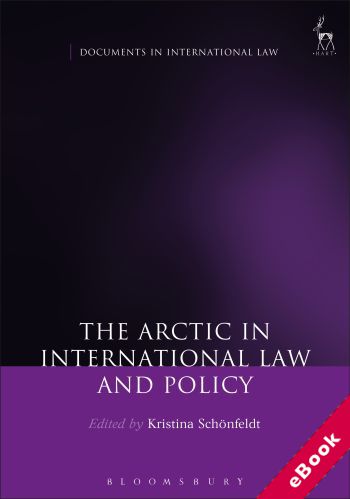
The device(s) you use to access the eBook content must be authorized with an Adobe ID before you download the product otherwise it will fail to register correctly.
For further information see https://www.wildy.com/ebook-formats
Once the order is confirmed an automated e-mail will be sent to you to allow you to download the eBook.
All eBooks are supplied firm sale and cannot be returned. If you believe there is a fault with your eBook then contact us on ebooks@wildy.com and we will help in resolving the issue. This does not affect your statutory rights.
The Arctic is an increasingly important region faced with major challenges caused not only by the effects of climate change but also by a growing interest in its living and non-living resources, its attraction as a new destination for tourism and as a route for navigation.
It is not only the eight Arctic States that have paid an increased level of attention to the region; several non-Arctic actors from Asia and Europe also seek to gain more influence in the High North. At the same time, the evolving law and policy architecture for the Arctic region has recently played a more prominent role in the political and academic debate. Unlike Antarctica, where the coherent Antarctic Treaty System governs international cooperation, the legal regime of Arctic affairs is based on public international law, domestic law, and 'soft law'. These three pillars intersect and interact making Arctic governance very complex and multi-faceted.
This book provides an analytical introduction, a chronology of legally relevant events, and a selection of essential materials covering a wide range of issues, eg delineation and delimitation of maritime boundaries, environmental protection, indigenous peoples' rights, shipping, and fisheries; included are multilateral and bilateral treaties, UN documents, official statements, informal instruments, domestic laws, and diplomatic correspondence.